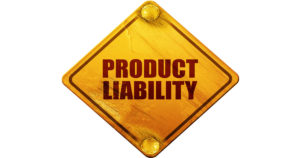Pressure Washer Injuries
May 18, 2020 Pressure washers (also sometimes called power washers) are power tools that spray water at high pressures. They clean different types of surfaces and can remove mold, paint, dust, mud, grime, and paint. As such, they are popular tools in a variety of workplaces as well as in residential settings. Pressure washers spray water at such high pressures that there are major risks for sustaining serious injuries, some of which even result in amputation. Every year, more than 6,000 people go to emergency rooms for medical treatment after sustaining pressure washer-related injuries.
Pressure washers (also sometimes called power washers) are power tools that spray water at high pressures. They clean different types of surfaces and can remove mold, paint, dust, mud, grime, and paint. As such, they are popular tools in a variety of workplaces as well as in residential settings. Pressure washers spray water at such high pressures that there are major risks for sustaining serious injuries, some of which even result in amputation. Every year, more than 6,000 people go to emergency rooms for medical treatment after sustaining pressure washer-related injuries.
Hazards Associated With Pressure Washers
Pressure washers create several hazards. Some of the most common ones are:
- The spray from a pressure washer can inflict major wounds, like lacerations, punctures, eye injuries, bruises, sprains and strains, and more,
- The spray can propel objects or send debris flying, which then strike people and cause injuries,
- Electrical shocks, and:
- Carbon monoxide hazards. If the pressure washer has a gasoline-powered engine, carbon monoxide risks are present.
As you can see, exposure to highly pressurized water is not the only hazard that comes along with using a pressure washer. Because of how dangerous pressure washers can be, taking precautions when operating one can limit preventable injuries from happening. The Centers for Disease Control and Prevention (CDC) have several recommendations on the precautions people should take when using a pressure washer. Here are just a few examples of the CDC’s recommendations:
- Never point a pressure washer at yourself or anyone else,
- Do not use gasoline powered pressure washers in enclosed spaces (because of carbon monoxide dangers),
- Never allow children to operate pressure washers, and whenever you are using one, be sure to keep children at a safe distance,
- Do not attempt to move or push objects with the spray,
- Be sure to test ground fault circuit interrupters (outlets or circuit breakers) before using pressure washers,
- Wear rubber-soled shoes when using pressure washers in the case of electrocution, and:
- If the pressure washer trips a circuit breaker, have a qualified electrician inspect it before using it again
There are also a number of helpful precautions people can take in the workplace to prevent pressure washer-related injuries from happening. Employers should provide employees with the proper PPE (personal protective equipment), such as face shields and safety glasses. Workspaces should be kept clear of tripping and slipping hazards, and it is also critical to ensure that no employees are in the line of fire (for highly pressurized water or flying debris) when a pressure washer is in use. Because pressure washers are notoriously dangerous power tools, it is essential that employers come up with effective safety and health programs to mitigate their risks.
If You Were Injured
Over the years, several different pressure washers have been recalled because of dangerous design defects and flaws. Although manufacturers have a legal responsibility to produce and sell safe products, they sometimes value profits over people and as a result, people get injured. If an unsafe or defective pressure washer injured you, you may be able to file a legal claim. To learn more, contact a representative who can help online now.
Philadelphia Products Liability Lawyers at Galfand Berger, LLP Representing Injured Victims Since 1947
Galfand Berger has offices located in Philadelphia, Bethlehem, Lancaster, and Reading we serve clients throughout Pennsylvania and New Jersey. To schedule a consultation, call our legal team at 800-222-8792 or complete our online contact form.
 Google Screened
Google Screened
